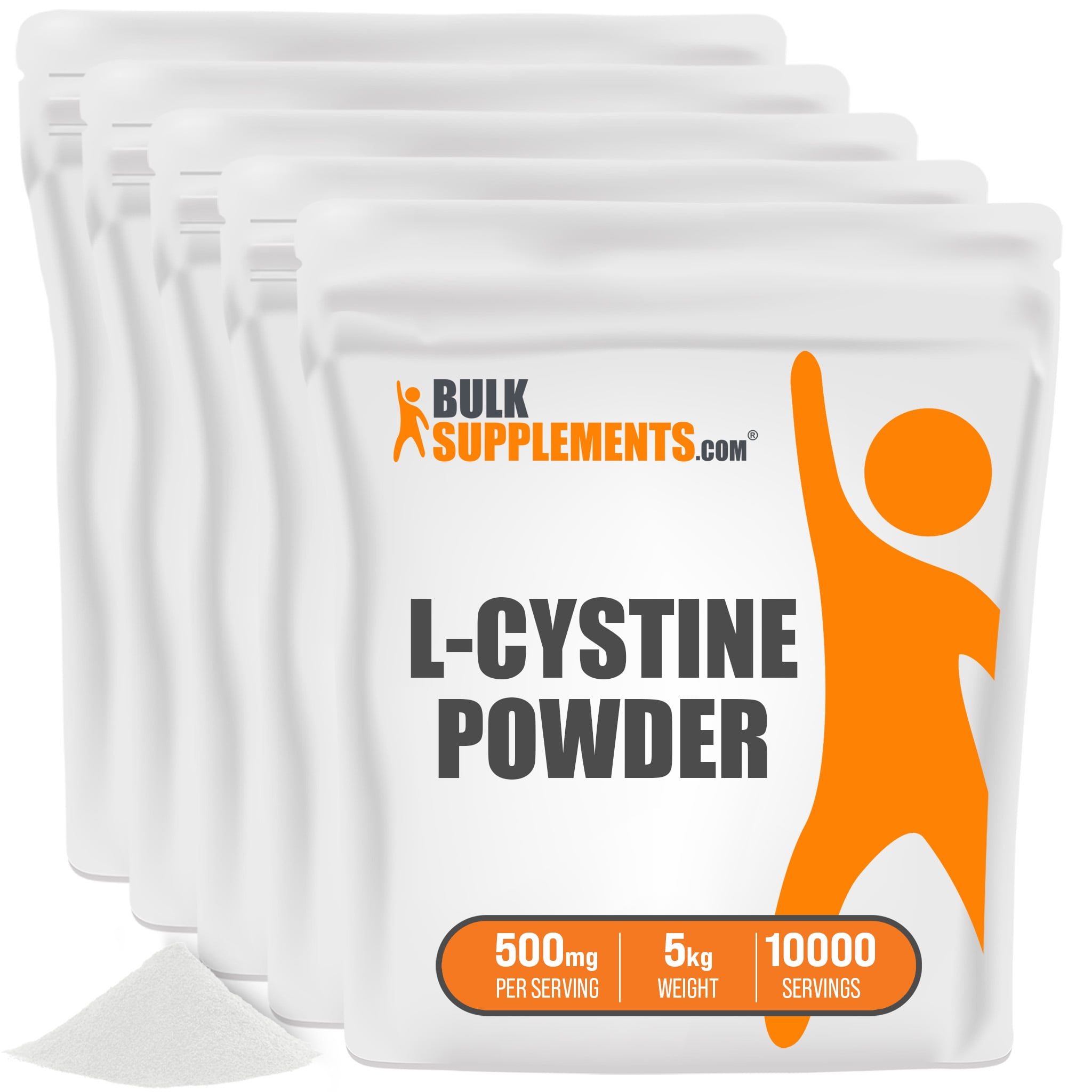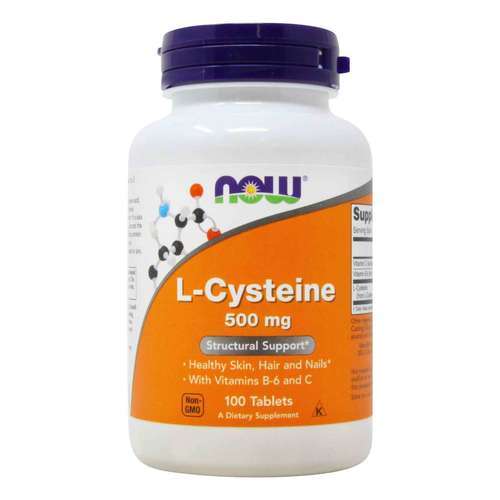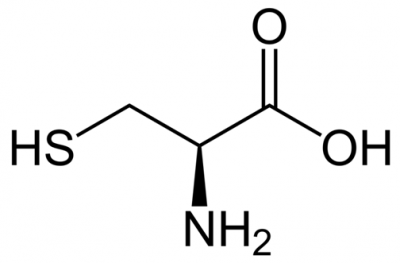Cysteine supplement is a powerful amino acid that plays a critical role in maintaining overall health. As a semi-essential amino acid, it’s involved in numerous bodily functions, including antioxidant defense, detoxification, and the synthesis of important proteins. Whether you’re looking to boost your immune system, support respiratory health, or improve skin and hair quality, understanding the benefits and uses of cysteine can be highly valuable.
In this article, we’ll explore what cysteine is, its key roles in the body, and why it’s becoming increasingly popular as a supplement. We’ll also cover its safety, dosage recommendations, and how it compares to other similar supplements like N-acetylcysteine (NAC).
Table of Contents
- What Is Cysteine?
- The Role of Cysteine in the Body
- Top Benefits of Cysteine Supplements
- Safety and Side Effects of Cysteine
- Dosage Guidelines and Usage Recommendations
- Frequently Asked Questions About Cysteine
What Is Cysteine?
Cysteine is a sulfur-containing amino acid that is essential for the production of glutathione, one of the body’s most powerful antioxidants. While the body can produce some cysteine on its own, certain conditions—such as illness, stress, or intense physical activity—can increase the need for dietary or supplemental intake.
Cysteine is found naturally in high-protein foods such as eggs, poultry, dairy products, seeds, legumes, and whole grains. However, many people turn to supplements like N-acetylcysteine (NAC), which is more stable and better absorbed by the body than regular cysteine.
The Role of Cysteine in the Body

Cysteine plays a crucial role in several biological processes:
1. Antioxidant Defense
Cysteine is a key component in the production of glutathione, a tripeptide that protects cells from oxidative damage caused by free radicals. Glutathione helps neutralize toxins, supports the immune system, and regulates cellular metabolism.
2. Protein and Enzyme Structure
The sulfur atoms in cysteine allow it to form disulfide bonds, which help stabilize the structure of proteins, enzymes, and connective tissues. This is particularly important for the integrity of hair, nails, and skin.
3. Detoxification
Cysteine supports liver detoxification by binding to heavy metals, drugs, and other toxins, helping to eliminate them from the body. It is especially useful in cases of acetaminophen (Tylenol) overdose, where it acts as an antidote by restoring glutathione levels.
4. Immune System Support
Cysteine is necessary for the proper function of white blood cells, which are vital for fighting infections. It also helps regulate inflammation and reduce oxidative stress, which can contribute to chronic diseases.
5. Respiratory Health
As NAC, cysteine is used to thin mucus in the lungs, making it easier to expel. It is commonly prescribed for conditions like chronic bronchitis, COPD, and asthma.
Top Benefits of Cysteine Supplements

Cysteine supplementation, especially in the form of NAC, has been linked to a variety of health benefits supported by scientific research:
1. Boosting Antioxidant Levels
By increasing glutathione production, cysteine helps protect the body against oxidative stress, which is linked to aging, cancer, and chronic diseases.
2. Supporting Liver Health
Cysteine aids in the detoxification process, helping the liver remove harmful substances. It is particularly beneficial for those exposed to environmental toxins or excessive alcohol consumption.
3. Improving Respiratory Function
NAC is widely used to treat respiratory conditions by reducing mucus viscosity and improving lung function. It is approved by the FDA for use in mucolytic therapy.
4. Enhancing Immune Function
Cysteine supports the immune system by promoting the proliferation and activity of immune cells, helping the body fight off infections more effectively.
5. Promoting Skin, Hair, and Nail Health
As a building block of keratin, cysteine is essential for strong, healthy hair and nails. It also plays a role in collagen synthesis, which is important for skin elasticity and repair.
6. Managing Mental Health
Emerging research suggests that cysteine may help with obsessive-compulsive disorder (OCD), addiction, and mood disorders by regulating neurotransmitter balance and reducing oxidative stress.
Safety and Side Effects of Cysteine

Cysteine, particularly in the form of NAC, is generally considered safe when taken at recommended dosages. However, there are some potential side effects and precautions to consider:
Common Side Effects
- Nausea
- Diarrhea
- Headache
- A sulfur-like odor (common with NAC)
Allergic Reactions
While rare, some individuals may experience allergic reactions such as rash, itching, or swelling. Those with a history of allergies to sulfur-containing compounds should exercise caution.
Precautions
- Pregnancy and breastfeeding: Consult a healthcare provider before using cysteine supplements.
- Children: Dosage guidelines for children are not well established.
- Bleeding disorders: Cysteine may slow blood clotting, so it should be avoided if you have a bleeding condition.
- Kidney disease: The safety of cysteine in individuals with kidney issues is not fully understood.
Interactions
Cysteine may interact with certain medications, including:
– Nitroglycerin: May enhance its effects, leading to low blood pressure.
– Blood thinners: May increase the risk of bleeding.
– Activated charcoal: May reduce the effectiveness of NAC.
Dosage Guidelines and Usage Recommendations
The appropriate dosage of cysteine depends on the individual’s health goals and medical conditions. Here are general guidelines:
For General Wellness
- 600–1,200 mg of NAC per day, divided into 1–2 doses.
For Respiratory Support
- 600–1,800 mg of NAC per day, often split into two or three doses.
For Liver Detoxification
- 600–1,800 mg of NAC per day, based on individual needs and medical advice.
For Mental Health
- 1,200–2,400 mg of NAC daily, under medical supervision.
Tips for Safe Use
- Start with a low dose and gradually increase as tolerated.
- Take with food to reduce stomach upset.
- Stay hydrated, especially when using NAC for respiratory support.
- Consult a healthcare provider before starting any new supplement, especially if you have pre-existing medical conditions or are taking medications.
Frequently Asked Questions About Cysteine

Q: What is cysteine used for in supplements?
A: Cysteine, especially as NAC, is used for antioxidant support, respiratory health, liver detoxification, immune function, and sometimes for mental health and skin support.
Q: Is cysteine safe to take daily?
A: Yes, when used at recommended dosages, cysteine (NAC) is generally safe for daily use by healthy adults. Always consult your healthcare provider if you have medical conditions or take medications.
Q: Can cysteine help with mucus or respiratory issues?
A: Absolutely. NAC acts as a mucolytic, thinning mucus and supporting clear airways in conditions like bronchitis, COPD, asthma, and sinusitis.
Q: Does cysteine support liver health?
A: Yes, cysteine supports liver detoxification by boosting glutathione, aiding in neutralizing toxins, including medications like acetaminophen.
Q: Are there any side effects to cysteine supplements?
A: Mild side effects include stomach upset, headache, or a sulfur odor. Rarely, allergic reactions or bronchospasm may occur—especially in those with asthma or allergies.
Q: Can I take cysteine with other supplements or medications?
A: In most cases, yes, but cysteine can interact with nitroglycerin, activated charcoal, and some anticoagulants. Check with your doctor or pharmacist before combining with medications.
Q: Should pregnant or breastfeeding women use cysteine supplements?
A: Safety has not been established for pregnancy or breastfeeding, so consult your healthcare provider before starting cysteine or NAC during these times.
Conclusion
Cysteine is a versatile and essential amino acid that plays a critical role in maintaining overall health. From supporting antioxidant defenses and detoxification to improving respiratory function and immune response, its benefits are backed by scientific research. When used appropriately, cysteine supplements like NAC can be a valuable addition to a wellness routine.
If you’re considering adding cysteine to your diet, it’s always best to consult with a healthcare professional to ensure it’s right for your specific needs. With the right guidance, you can harness the power of cysteine to support long-term health and vitality.
Stay updated with the latest news about cysteine supplements and their role in modern health practices. Explore today’s headlines to learn more about the science behind this powerful amino acid.










More Stories
What is an Accord? Understanding the Definition and Usage
US Trending News: Affiliate Secrets Review
US Trending News: Understanding Alameda County Property Tax